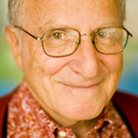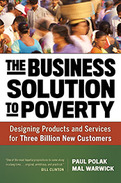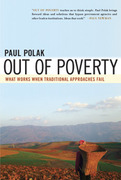Paul Polak's Page
The Business Solution to Poverty
How can the world’s nearly 3 billion who live on $2 a day or less be lifted out of poverty? Paul Polak (bestselling autho...
Out of Poverty
Paul Polak, whose organization International Development Enterprises (IDE) has directly helped over 17 million people ge...
-

Paul Polak is now a member of Berrett-Koehler Community
Paul hasn't added any Favorite Books
Favorite Websites:







